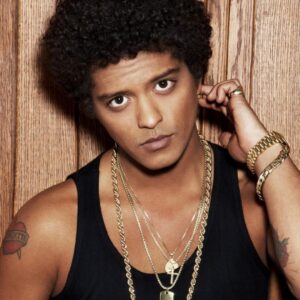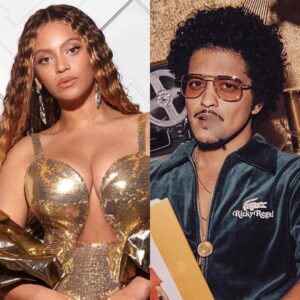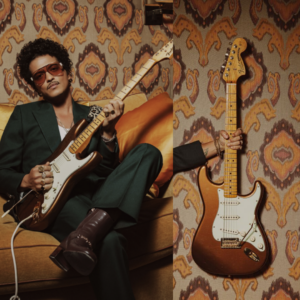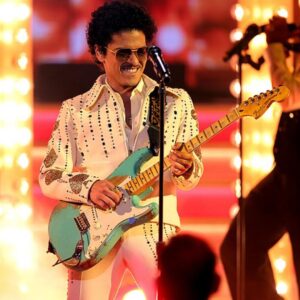Emma Watson’s speech marked the launch of the United Nations’ #HeForShe campaign, calling on men to become allies in the cause of feminist activism.
Emma Watson speaks at the United Nations. Photo: VanityFair.
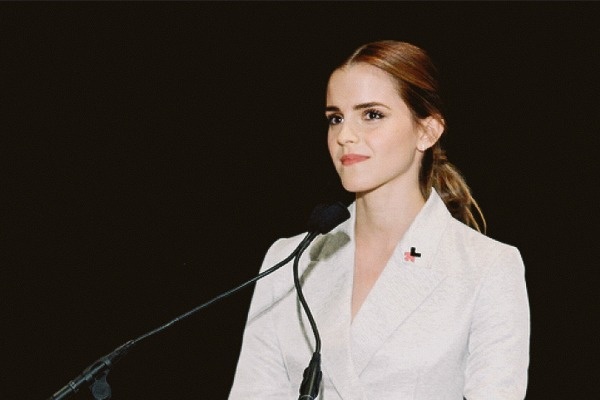
Emma Watson speaks at the United Nations. Photo: VanityFair .
During her teenage years, Emma Watson played the female lead role of Hermione Granger in the famous Harry Potter film series. When Ban Ki-moon introduced her to speak in 2014, he said: “You waved a magic wand in your movie… I hope you will use your magic wand to end violence against women”. Without chopsticks, Watson used his words.
The speech marked the launch of the United Nations’ #HeForShe campaign, calling on men to become allies in the cause of feminist activism. The speech has more than 5 million views on YouTube.
Initially, Watson’s popularity may have attracted many viewers, especially young people, but the speech itself became famous for its clear message: Gender equality also matters. your topic.
She spoke carefully and seriously. And her speech makes no assumptions about the viewer’s perspective. She doesn’t aim her words at people with the same opinion, she aims to persuade everyone.
Watson later said that she was advised not to use the word “feminism” in her speech, but she realized that was the problem.
She tried to explain carefully why she calls herself a feminist and what it means. She carefully lists the personal experiences that led her to challenge gender stereotypes: at age eight being described as bossy, at age 14 being sexualized by the press.
And the speech made a strong impact. Young women around the world watched the speech and felt empowered to use the word “feminism,” seeing it as a positive and powerful word.
Even Malala, who has publicly advocated for girls’ education for years, later told Watson that she found the word “feminism” a difficult word to use before watching Watson’s speech: hesitated while saying whether he was a feminist or not? After listening to your speech, I decided… there’s nothing wrong with calling yourself a feminist.”
Young actors or young artists who make the jump from the theater to the political stage often face mixed reactions. Their popularity may make it harder for the other person to silence them, but the decision to speak up is still a difficult one, and their status cannot protect them from the criticism that will inevitably follow. go out.
Watson said the speech led to “a level of criticism that I have never experienced in my life and was the beginning of a series of threats.”
But as she says in this speech, she asked herself, as many of the women in this book have done since then: “If not me, then who? If not now, then when?” “.
Today we are launching a campaign called “HeForShe”.
I’m reaching out to you because I need your help. We want to end gender inequality and to do that, we need everyone to get involved.
This campaign is the first of its kind at the United Nations: we want to encourage as many men as possible to become advocates for gender equality. And we won’t just talk, we’ll make sure this isn’t just a pipe dream.
I was appointed UN Women Goodwill Ambassador six months ago and the more I talk about feminism, the more I realize that fighting for women’s rights is often equated with hatred. male. If there’s one thing I know for sure, I know I have to stop this way of looking at it.
In fact, the definition of feminism is: “Men and women should have equal rights and opportunities. That is the theory of gender equality in politics, economics, and society.”
I started questioning gender-based assumptions when I was eight years old. I felt confused when I was called “bossy,” because I wanted to direct the plays we did for our parents. But boys are not called that.
When I was fourteen, some newspapers started sexualizing me.
At age fifteen, my girlfriends started quitting their sports teams because they didn’t want their appearance to be “muscular.”
When I turned 18, my male friends couldn’t express their feelings anymore.
I decided that I was a feminist and this seemed uncomplicated to me. But recent research has shown me that “feminism” has become an unpopular word. It turned out that I was among those women whose symptoms were considered too strong, too aggressive, isolated, man-hating, and unattractive.
Why does this word create such an unpleasant feeling?
I’m from England and I think I should be paid the same as my male colleagues. I think it’s reasonable for me to be able to decide matters about my body. I think it is reasonable for women to participate in policies and decide on issues in my country on my behalf. But sadly, there is no country in the world where all women can expect to receive these rights.
No country in the world can say that it has achieved gender equality.
These rights are human rights, but I am one of the lucky ones. My life is an absolute privilege because my parents do not love me any less because I am a girl. School doesn’t limit me because I’m a girl. My career advisors don’t think I won’t be able to go further because one day I might have children. These people who influence me are the gender equality ambassadors who have made me who I am today. They may not know it, but they are the unwitting feminists who are changing the world today. We need more people like them.
And if you still hate those two words – it’s not the words that matter but the ideas and ambitions behind them. Because not all women have the same rights that I do. According to actual statistics, very few people are like that.
In 1995, Hillary Clinton gave a famous speech in Beijing about women’s rights. Sadly, many of the things she wanted to change are still reality today.
But what I noticed most was that only 30% of her audience was male. How can we create change around the world when only half are invited or feel welcomed into the conversation?
Men – I would like to take this opportunity to extend a formal invitation to you. Gender equality is also your issue.
Because to this day, I feel like my father’s role as a parent is not given much importance by society, even though as a child I needed my father’s presence as much as my mother.
I have seen so many young men suffering from mental illness and not being able to ask for help for fear that it will make them look less “manly” – in fact in the UK, suicide is the leading cause of death in men. gender from 20-49 years old; more than road traffic accidents, cancer and coronary heart disease. I have seen men become fragile and insecure by a distorted sense of what constitutes male success. Men also do not enjoy the benefits of equality.
We don’t usually talk about men being imprisoned in gender stereotypes but I can see that they are being imprisoned and when they are free things will change for women because that is the result. necessary. If men don’t have to be aggressive to be accepted, then women won’t feel obligated to be submissive. If men are not in control, then women will not have to be controlled.
Both men and women should feel free to express sensitivity. Both men and women should be free to be strong… It’s time we all see gender on a spectrum, rather than as two opposing sets of ideals.
If we stop defining each other by what we don’t have and start defining ourselves by what we do have – we can all be freer and this is what “HeForShe” is about . Its goal is freedom.
I want men to take up this mantle so that their daughters, sisters and mothers may not have to endure prejudice, but also so that boys are allowed to express themselves and have people’s emotions – reclaiming the parts of themselves that they have tried to eliminate, in doing so they will become a truer and more complete version of themselves.
You might be thinking, who is this girl who plays in the Harry Potter movies ? What is she doing on stage at the United Nations? That’s a good question and believe me, I’ve wondered the same thing. I don’t know if I’m qualified to be here or not. All I know is that I care about this issue. And I want it to get better.
And after having witnessed many cases, I feel it is my duty to say something when I get the chance. British statesman, Edmund Burke said: “If only a sufficient number of good men and women do nothing, the forces of evil will triumph.”
While nervous about this speech and in moments of doubt, I told myself – if not me, then who; If not now, then when? If you have similar doubts when the opportunity comes your way, I hope those words can be helpful.
Because the reality is that if we do nothing, it will take up to 75 years, or when I’m about a hundred years old, for women to get equal pay. Over the next 16 years, 15.5 million girls will marry early. And at the current rate, it won’t be until 2086 that all rural African girls will be able to attend secondary school.
If you believe in equality, you may have unwittingly become one of those feminists I talked about earlier.
And I applaud you for this.
We are thinking hard to find a unifying word but the good news is that we have a united movement. It is called “HeForShe”. I invite you to step up, to be seen, to speak up, to be “he” instead of “she.” And to ask yourself: if not me, then who? If not now, then when?
News
Bruno Mars Abruptly Cancels Sold Out Concert In Israel After ‘Militant’ Group Launches Attack Killing More Than 200 Civilians
Bruno Mars Bruno Mars Abruptly Cancels Sold Out Concert In Israel After ‘Militant’ Group Launches Attack Killing More Than 200 Civilians War has broken out in Israel….
“Phenomenon” Bruno Mars caused a fever in the music industry after 4 years of absence
The male singer of famous hits in the international music industry, such as “Just the Way You Are”, “Grenade”, “The Lazy Song”, “Uptown Funk!”… has just reappeared….
Fans Question Bruno Mars about Where He Had Been after He Trolls Artists over Grammy Snubs
A few days after “Just the Way You Are” crooner dropped a witty Grammy-related post on social media, fans have begun asking him when he would release…
Nick Cannon thinks Bruno Mars has more hits than Beyoncé and Taylor Swift
Beyonce and Bruno Mars performed together at the Super Bowl 50 halftime show. Nick Cannon thinks Bruno Mars has more hit songs than Beyoncé and Taylor Swift….
FENDER HONORS GRAMMY-WINNING ARTIST, MULTI-INSTRUMENTALIST, SONGWRITER, AND PRODUCER BRUNO MARS WITH ARTIST SIGNATURE STRATOCASTER GUITAR
The Bruno Mars Stratocaster® Features the All New Mars Mocha Heirloom™ Finish, 1969 Vintage Stratocaster® Neck Shape and a Custom-Set of Bruno Mars Pickups that Personifies Mars’ Unique Style…
Bruno Mars Cancels Israel Show Amid Hamas Attack
Bruno Mars performs on December 02, 2016 in Los Angeles. B LACROIX/WIREIMAGE Bruno Mars’s sold-out concert in Tel Aviv on Saturday has been canceled, its promoters announced…
End of content
No more pages to load

